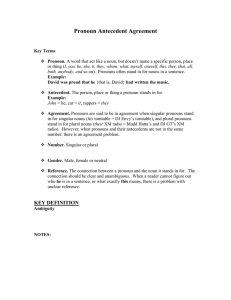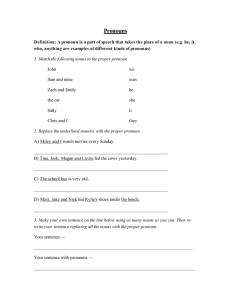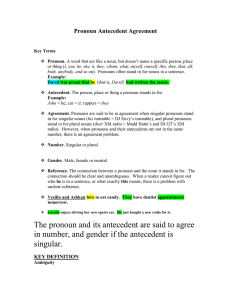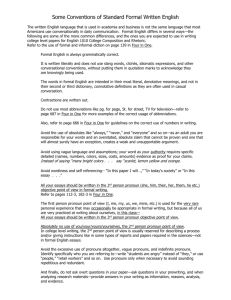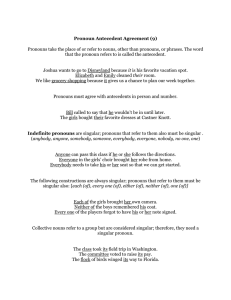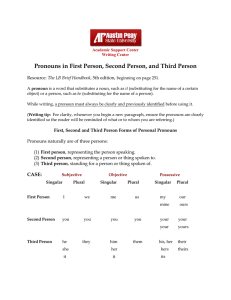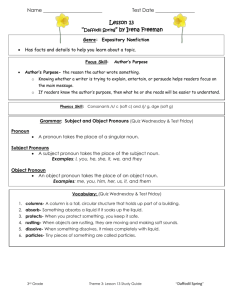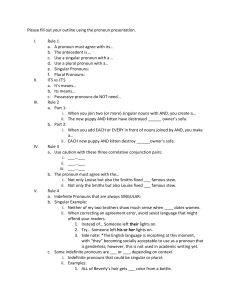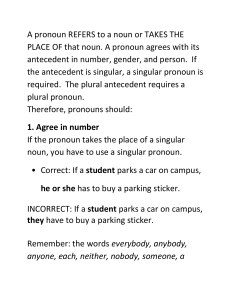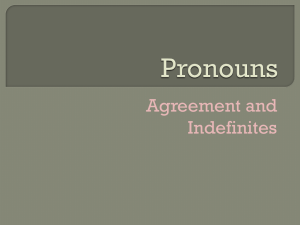Name: ______________________________________ Period: ______________ Pronoun Rules
advertisement
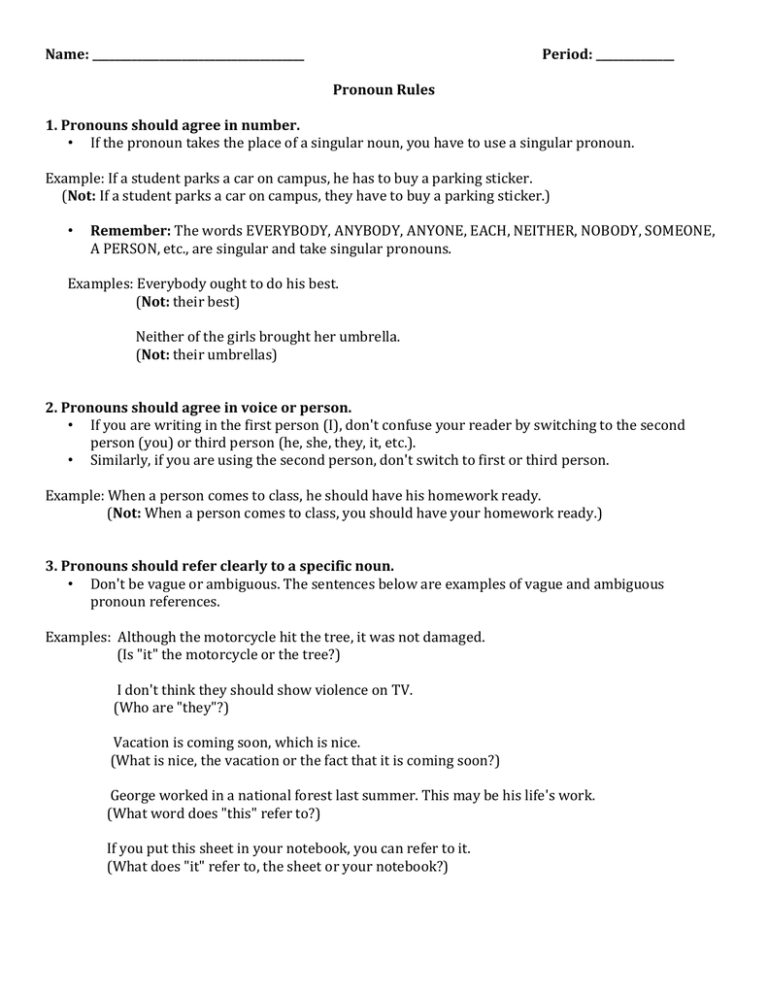
Name: ______________________________________ Period: ______________ Pronoun Rules 1. Pronouns should agree in number. • If the pronoun takes the place of a singular noun, you have to use a singular pronoun. Example: If a student parks a car on campus, he has to buy a parking sticker. (Not: If a student parks a car on campus, they have to buy a parking sticker.) • Remember: The words EVERYBODY, ANYBODY, ANYONE, EACH, NEITHER, NOBODY, SOMEONE, A PERSON, etc., are singular and take singular pronouns. Examples: Everybody ought to do his best. (Not: their best) Neither of the girls brought her umbrella. (Not: their umbrellas) 2. Pronouns should agree in voice or person. • If you are writing in the first person (I), don't confuse your reader by switching to the second person (you) or third person (he, she, they, it, etc.). • Similarly, if you are using the second person, don't switch to first or third person. Example: When a person comes to class, he should have his homework ready. (Not: When a person comes to class, you should have your homework ready.) 3. Pronouns should refer clearly to a specific noun. • Don't be vague or ambiguous. The sentences below are examples of vague and ambiguous pronoun references. Examples: Although the motorcycle hit the tree, it was not damaged. (Is "it" the motorcycle or the tree?) I don't think they should show violence on TV. (Who are "they"?) Vacation is coming soon, which is nice. (What is nice, the vacation or the fact that it is coming soon?) George worked in a national forest last summer. This may be his life's work. (What word does "this" refer to?) If you put this sheet in your notebook, you can refer to it. (What does "it" refer to, the sheet or your notebook?)
